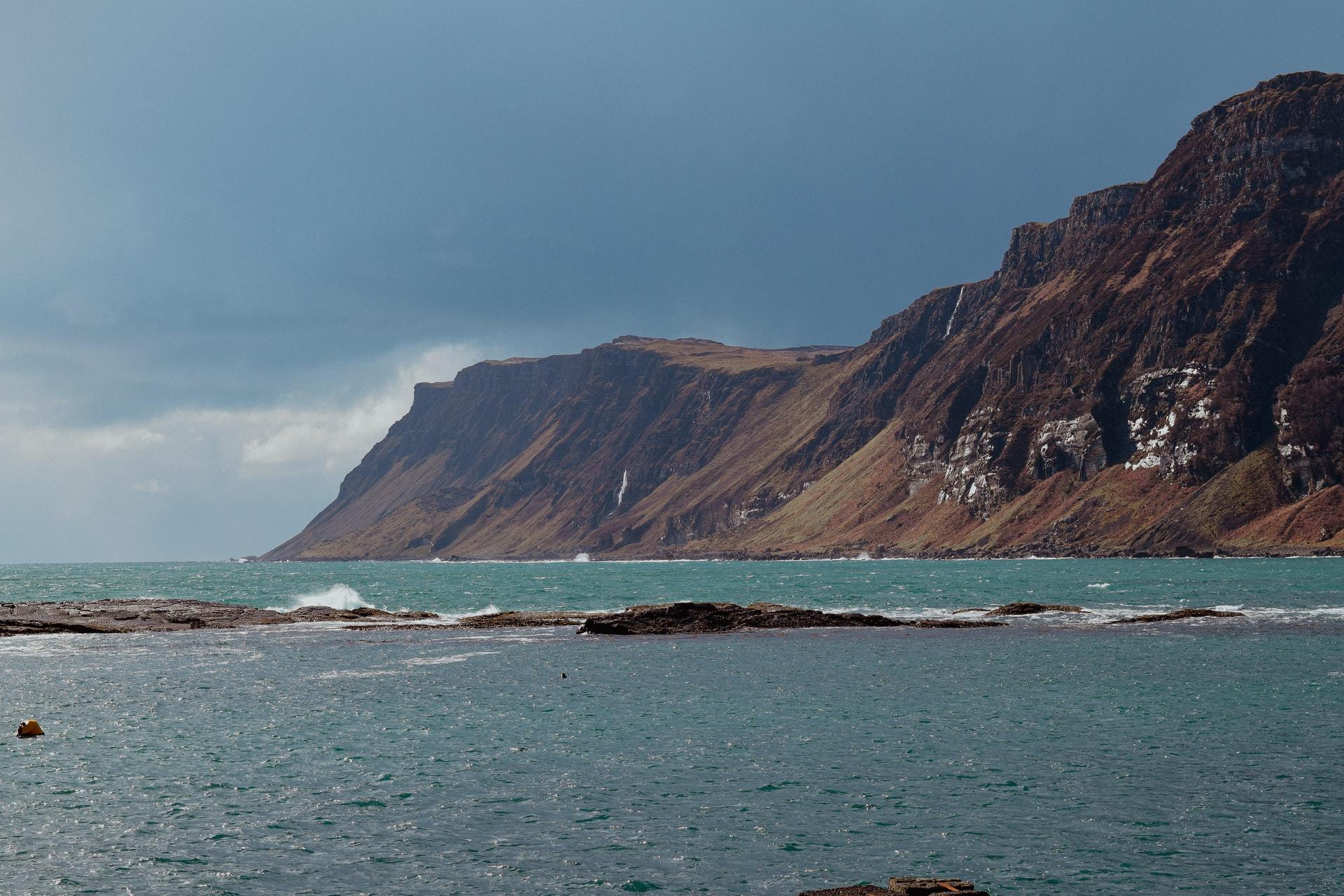
THIS week sees the 150th anniversary of the death of one of Scotland’s finest yet least-known Gaelic poets, Mary Macdougal Macdonald, author of a hymn which is known throughout the Christian world and whose tune in another form with different words made the pop music charts in the 1970s.
The first thing to say is that Mary Macdougal Macdonald should not be confused with another Mary, who was born a MacDonald and became a MacPherson. That was Màiri Mhòr nan Òran or Great Mary of the Songs (1821-1898) who was originally from the Isle of Skye whereas Mary Macdougal Macdonald was from Mull. The two are frequently confused, but this Mary Macdonald very much led a quiet life while Great Mary of the Songs was well known in Scotland for her writings and her activism for land reform.
Mairi Dhughallach was born at Brolas near Ardtun on Mull in 1789, though her exact birthdate was not known. Nor is there any Church of Scotland record of her birth and christening, for Mary was born into a Baptist family and she followed that faith devoutly all her life.
Her father was Duncan Macdougal, who was both a farmer and a Baptist preacher. The family all spoke Gaelic and Mary never spoke any more than a smattering of English. Instead, like other family members, she learned Gaelic poems, songs and hymns.
Mary married a crofter, Neil Macdonald, and moved to his croft at Ardtun – not far from Bunessan, the largest village on the Ross of Mull. I was unable to find any trace of children but it was remembered locally many years later that she sang while spinning, and at some point she began to write poems and compose hymns for use by her fellow Baptists.
Perhaps because she performed her works from memory, very little of her output survives, though she did once compose a satirical poem on tobacco to chastise her husband for his smoking.
Maddeningly we do not know when she composed her most famous work or the circumstances which brought it about. We do know that she wrote the hymn Leanabh an àigh and set it to a local tune. It was a beautiful lilting tune which some say was brought to Mull by a travelling Gaelic musician, and Mary’s Gaelic words were perfectly set to that tune. Here is the Gaelic version of Leanabh an àigh, child of wonder.
Leanabh àigh, an Leanabh aig Màiri
Rugadh san stàball, Rìgh nan Dùl;
Thàinig do’n fhàsach, dh’fhuiling ’n ar n-àite
Son’ iad an àireamh bhitheas dhà dlùth!
Ged a bhios leanabain aig rìghrean na talmhainn
An greadhnachas garbh is anabarr mùirn,
’S geàrr gus am falbh iad, ’s fasaidh iad anfhann,
An àilleachd ’s an dealbh a’ searg san ùir.
Cha b’ionann ’s an t-Uan thàinig gur fuasgladh
Iriosal, stuama ghluais e’n tùs;
E naomh gun truailleachd, Cruithfhear an t-sluaigh,
Dh’éirich e suas le buaidh o ùir.
Leanabh an àigh, mar dh’aithris na fàidhean;
’S na h-àinglean àrd’, b’e miann an sùl;
’S E ’s airidh air gràdh ’s air urram thoirt dhà
Sona an àireamh bhitheas dhà dlùth.
It appears to have been popular within the Baptist community but the hymn might never have been sung outside of the Gàidhealtachd had it not been for Lachlan Macbean (1853-1931) who was a Gaelic scholar and a journalist who for some time edited the Kirkcaldy-based Fifeshire Advertiser.
Macbean made it his task to gather Gaelic hymns and also published at least two books on learning Gaelic. The most successful were his Elementary Lessons in Gaelic (1889) and a Guide to Gaelic Conversation and Pronunciation (1895). He also published two collections of Gaelic hymns, The Sacred Songs of the Gael (1886) and Songs and Hymns of the Scottish Highlands (1888). Mary Macdonald’s hymn, published 16 years after her death, was in the latter book and though it was not precise, Macbean gave us a beautiful translation, a hymn that is sung to this day. Here’s the three verses Macbean left us:
Child in the manger, infant of Mary,
Outcast and stranger, Lord of all,
Child who inherits all our transgressions,
All our demerits on Him fall.
Once the most holy Child of salvation
Gently and lowly lived below.
Now as our glorious mighty Redeemer,
See Him victorious o’er each foe.
Prophets foretold Him, infant of wonder;
Angels behold Him on His throne.
Worthy our Saviour of all our praises;
Happy forever are His own.
Macbean also gave the hymn’s tune a name – Bunessan after the settlement close to Macdonald’s home, and within a few years it had become a popular Christmas carol.
After Mary’s passing on May 21, 1872, the co-author of the 1926 English hymn book Songs of Praise noted that Child in the Manger to the tune Bunessan had been include in the Revised Church Hymnary. Percy Dearmer loved Bunessan and for the second edition of Songs of Praise published in 1931, he asked English writer Eleanor Farjeon (1881-1965) “to make a poem to fit the lovely Scottish tune”.

Farjeon duly delivered her work, and Morning Has Broken has delighted children and adults ever since. In 1972, the singer Cat Stevens, now Yusuf Islam (above), released his version as a single. Morning Has Broken duly became a worldwide hit and subsequent cover versions have been produced by the likes of Neil Diamond, Nana Mouskouri and Daniel O’Donnell, though whether they knew it was a folk tune from Mull and originated as Mary’s hymn is unlikely.
Mary Macdonald is commemorated by an obelisk near where she lived on the A849 road on Mull. The monument describes her as a “poetess” who was “born Brolas 1789” and who “died Ardtun 1872”. Below that inscription are the first lines of Leanabh an àigh, translated as “Child in the manger, infant of Mary”.







